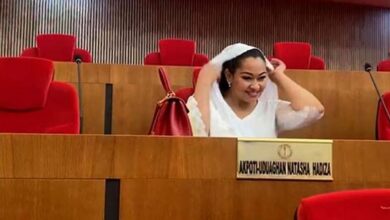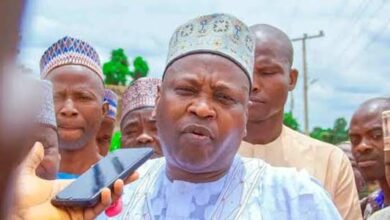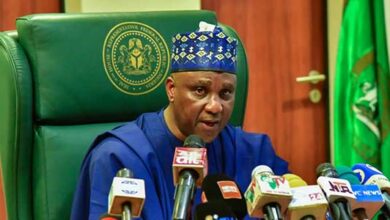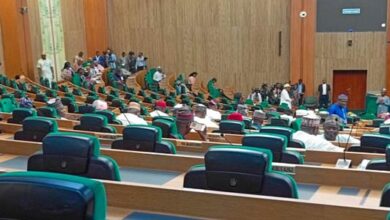Court Orders Halt To CAC Registration Of Wike-Appointed IBB Golf Club Trustees Led By Court Of Appeal President
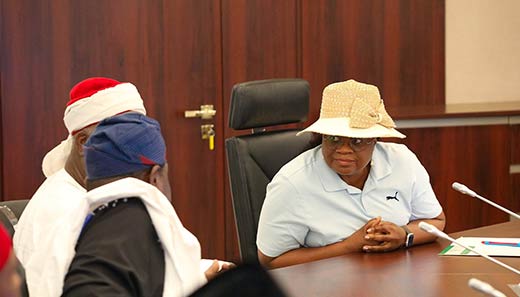
The Federal High Court in Abuja, presided over by Hon. Justice Emeka Nwite, has issued a series of interim injunctions in a high-stakes legal battle over the governance of the IBB International Golf and Country Club. The case, Suit No. FHC/ABJ/CS/698/2025, involves allegations of unlawful trustee appointments by the Minister of the Federal Capital Territory (FCT), Nyesom Wike, and accusations of judicial misconduct against Hon. Justice Monica Dongban-Mensem, CFR, President of the Court of Appeal.
The court has adjourned the matter to April 22, 2025, for the hearing of the substantive motion on notice.
The lawsuit was filed by plaintiffs Ubong Esop Akpan, Tijani Abdusalam Ogueyi, and Olalere Babasola, who challenge the recent appointment of Justice Dongban-Mensem as Chairman of the Board of Trustees (BoT) for the IBB Golf Club, alongside other purported trustees. The appointments, inaugurated by Wike on April 4, 2025, at his official residence in Life Camp, Abuja, aimed to address internal crises within the club. The new BoT, which replaced General I.B.M. Haruna (rtd), includes Otunba Olusegun Runsewe, Mrs. Grace Ihonvbere, S.I. Ameh (SAN), Hamid Abbo, Admiral Victor Adedipe (rtd), Chief Patrick Chidolue, and Mr. Ikokwu.
The plaintiffs, represented by Senior Advocate of Nigeria Abdulaziz Ibrahim and Chief Samson Okpetu (JP), Esq., argue that Wike’s appointments are irregular and violate the club’s governance structure, which they claim became a private entity in 2011 under former President Goodluck Jonathan. They describe the appointments as unconstitutional and seek to prevent the purported trustees from assuming their roles or registering with the Corporate Affairs Commission (CAC).
The defendants named in the suit include:
On April 15, 2025, following an ex-parte motion filed on April 14, Justice Nwite granted several interim injunctions to maintain the status quo pending the determination of the substantive motion. The court’s orders include:
Justice Nwite directed the plaintiffs to notify all defendants of the legal action and adjourned the case to April 22, 2025, for further proceedings. The orders reflect the court’s recognition of the serious nature of the plaintiffs’ claims and the need to preserve the club’s governance status until the matter is fully resolved.
The case has garnered widespread attention due to allegations of judicial misconduct against Justice Dongban-Mensem, whose acceptance of the BoT chairmanship has drawn sharp criticism. Prominent human rights lawyer Professor Chidi Odinkalu, former chairman of the National Human Rights Commission, has labeled the appointment “judicial misconduct of the rankest species.” In posts on X, Odinkalu argued that Justice Dongban-Mensem’s involvement compromises judicial independence, particularly given the ongoing litigation over the club’s governance.
Odinkalu pointed to the April 4 inauguration event, where Wike and Dongban-Mensem appeared together, as evidence of “influence peddling.” He also raised concerns about Wike’s broader influence in judicial circles, noting the recent promotion of Wike’s wife to the Court of Appeal and his frequent interactions with senior judicial officers. Odinkalu called on the Nigerian Bar Association (NBA) to address what he described as the “accessorization of judicial officers” by the FCT Minister.
The IBB Golf Club, one of Abuja’s most prestigious institutions, has been plagued by internal disputes, prompting Wike’s intervention. The FCT Minister asserted that the club remains under the ownership of the FCT Administration and has not been privatized, justifying his authority to appoint a new BoT. Wike tasked the board with conducting transparent elections, amending the club’s constitution, and upgrading its facilities to restore order and enhance its economic potential.
At the inauguration, Justice Dongban-Mensem expressed gratitude for Wike’s decisive action and committed to fostering harmony among club members. She emphasized the club’s role in promoting economic and environmental sustainability, urging stakeholders to cooperate.
However, the plaintiffs’ lawsuit challenges the legitimacy of these appointments, arguing that they contravene the club’s legal status as a private entity. The case also raises broader questions about the intersection of political power and judicial roles, with critics warning that such appointments risk eroding public trust in the judiciary.
